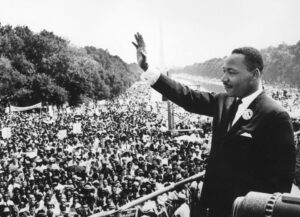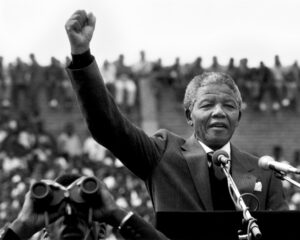In a world facing crises of war, inequality, political instability, and cultural conflict, acts of kindness are more than mere niceties—they are essential virtues that can transform society. From a virtue ethics standpoint, kindness is a moral habit that shapes not only the individual but also the society, offering a pathway to genuine human flourishing and societal well-being. As virtue ethics emphasizes the development of character and the cultivation of moral virtues, the practice of kindness becomes integral to the moral progress of individuals and the collective good. The history of kind people and acts of kindness shows that such behavior has catalyzed positive changes in governance, economic growth, cultural enrichment, and social welfare.
Historical Impact of Acts of Kindness on Governance and Nation Development
Throughout history, the most impactful leaders have not merely governed through laws and decrees but have inspired through moral character and compassionate acts. The virtue of kindness has been a common thread among those who not only shaped nations but also cared for the welfare of the common people. Take, for instance, the reign of King Ashoka of India in the 3rd century BCE. After witnessing the horrors of war, he renounced violence and embraced kindness, implementing policies rooted in nonviolence, kindness, and moral welfare. His governance was marked by the establishment of hospitals, the planting of shade trees along roadsides, and the promotion of animal welfare, demonstrating that kindness can be woven into the fabric of governance to foster peace and development.
Another significant example is the life of Nelson Mandela. His practice of reconciliation, even towards those who had oppressed him, is a testament to how acts of kindness can transform a divided nation. Mandela’s approach to post-apartheid South Africa was not one of vengeance but of kindness and forgiveness, aimed at healing a fractured society. His emphasis on forgiveness helped to set a foundation for social harmony and nation-building, proving that kindness can indeed steer societies toward stability and unity.
Economic Impact of Kindness
The virtue of kindness extends to economic relations, where it can act as a catalyst for sustainable development. The ethical treatments of workers, fair trade, and philanthropy have historically been associated with increased productivity and the betterment of societies. Consider the example of Andrew Carnegie, a 19th-century industrialist who, despite amassing a vast fortune, recognized the moral imperative to give back to society. He donated much of his wealth to build libraries, schools, and universities, thereby enhancing educational opportunities for the less privileged and contributing to the cultural and intellectual growth of nations.
Modern corporations, too, are recognizing the importance of “kindness economies,” where companies that practice corporate social responsibility (CSR) and treat employees with respect often outperform those that prioritize profits over people. A company that invests in the welfare of its employees and its surrounding community builds loyalty, increases employee productivity, and fosters innovation. These acts of kindness in the business sector do not merely reflect ethical choices but also yield tangible economic benefits that ripple across society.
Cultural and Social Good Impacts of Kindness
The cultural implications of kindness are equally profound. Cultures that value compassion and benevolence are often more cohesive and resilient in the face of adversity. For instance, during times of crisis, such as natural disasters or pandemics, societies with strong communal bonds rooted in kindness and mutual aid tend to recover more quickly. This was evident during the 2004 Indian Ocean tsunami, where communities that embraced acts of kindness and supported one another rebuilt not only their physical infrastructure but also the social fabric that held them together.
From a social perspective, acts of kindness help to alleviate human suffering and foster a sense of connectedness that transcends differences in religion, ethnicity, and socio-economic status. The civil rights movement in the United States, led by figures such as Martin Luther King Jr., was driven by the moral power of nonviolent resistance—essentially acts of kindness towards even those who were hostile. The movement’s emphasis on love, kindness, and human dignity played a key role in reshaping societal attitudes towards race and justice.
Kindness also plays a crucial role in public health and social services. When policies and institutions prioritize the welfare of the most vulnerable, society as a whole benefits. For example, universal healthcare systems in countries like Norway and Sweden, grounded in the principle of equitable access to care, have led to better health outcomes and higher quality of life, not just for individuals but for the community at large. Such practices, which embody kindness, help to reduce inequalities and ensure that social progress is inclusive.
Why We Need Kindness More Than Ever 
In today’s world, where there is a rise in divisive politics, global conflicts, and social polarization, the practice of kindness is more urgent than ever. We face not only physical challenges like climate change but also moral ones such as the erosion of empathy and compassion in our interactions. Acts of kindness can be seen as small yet powerful forms of resistance against the spread of hate, anger, and fear. They serve as reminders of our shared humanity and the moral duty we have to look out for one another.
Moreover, acts of kindness help to cultivate virtues that are foundational for a well-functioning society: patience, humility, generosity, and courage. When we practice kindness, we are not just doing something “nice”—we are engaging in a moral act that shapes our character and, in turn, influences the character of society. The ripple effect of one kind act can inspire others, leading to a culture of kindness where moral values are reinforced through repeated practice.
Practical Steps to Integrate Kindness in Society
To truly embed kindness in the fabric of our society, we must move beyond individual acts and advocate for systemic changes. Here are some practical steps:
- Education in Kindness: Schools should teach kindness as part of the curriculum, not just as an extracurricular value but as a central component of character education. Teaching empathy, service, and moral courage prepares young people to be active participants in a society that values human dignity.
- Kindness in Governance: Policymakers should adopt a “kindness-first” approach in legislative processes, considering how policies will impact the most vulnerable members of society. Social welfare programs, accessible healthcare, and fair labor laws should be seen not merely as economic necessities but as moral imperatives.
- Corporate Social Responsibility: Businesses should integrate kindness into their core operations, going beyond profit-driven motives to adopt policies that benefit employees, customers, and the community. This can include fair wages, volunteer programs, and environmentally sustainable practices.
- Community Initiatives: Local communities can cultivate kindness through volunteer networks, neighborhood support groups, and initiatives aimed at helping the elderly, homeless, and marginalized. Community-driven acts of kindness can rebuild trust and strengthen social ties.
Conclusion
The practice of acts of kindness in a troubled world is not an abstract ideal but a concrete necessity. History has shown that kind people and kind societies achieve lasting change in governance, economic growth, cultural richness, and social welfare. Through the virtue of kindness, we can confront the pressing challenges of our time with moral courage and compassion, transforming not only our own character but also the moral fabric of society. In cultivating this virtue, we build a world where human flourishing is possible for all.
The World cannot heal itself. Join KINDWORLD TRANSFORMATION INITIATIVE in dispensing Good Works in a fractured world.
In a Cruel World A Kind and Gracious Society is possible.
